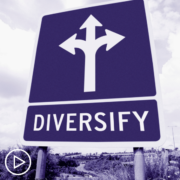Bone Marrow Registries | What Myeloproliferative Neoplasm Patients Should Know
Bone Marrow Registries | What Myeloproliferative Neoplasm Patients Should Know from Patient Empowerment Network on Vimeo.
What do myeloproliferative neoplasm (MPN) patients need to know about bone marrow registries? Expert Dr. Idoroenyi Amanam from City of Hope discusses bone marrow registries and what’s involved in serving as a bone marrow donor.
Related Resources:

|

|

|
Transcript:
Lisa Hatfield:
Dr. Amanam, I’m going to preface this question with, there is a bone marrow registry out there called Be The Match. So this is a three-part question. Do you know of any other bone marrow registries, is the first part? The second part is, how can we encourage donors from different ethnic backgrounds to join the bone marrow registry? And third part, how would that help your MPN patients from marginalized communities?
Dr. Indoroenyi Amanam:
Very good question. Our National Marrow Donor Program is integrated with other bone marrow registries internationally. And so I do believe that Be The Match is the best place that potential donors should reach out to if they’re interested in being a bone marrow donor. What was the second part of that question? I’m sorry.
Lisa Hatfield:
So the second part is, how can we encourage donors from different ethnic backgrounds to join the bone marrow registry?
Dr. Indoroenyi Amanam:
Sure. I know that the National Marrow Donor Program has had an interest for a very long time in increasing donors from specific ethnic groups. And I think it’s important for us to understand what a donor actually does, and the issues associated with being a donor. Being a bone marrow transplant donor I think is important, because you can save someone’s life. And being a donor really means that you go and get tested to be a donor, and you’re placed in a registry, and they may give you a call years from now that there’s someone that is a match based off of your genes.
And you would then be called to go in and do some additional blood testing. And then if you are able to get through that process, you meet with a doctor who’s connected to the National Marrow Donor Program, and they’ll ask a couple of questions related to your health history and do some additional testing. And once you get through that and you’re cleared to be a donor, there are really two different ways that you can be a bone marrow donor.
You can donate your bone marrow, or you can donate your stem cells that are not inside of your bone marrow. And typically as a donor, your experience of actually donating is about a day. And the recovery time after you donate your bone marrow or stem cells, it’s typically within about one to three days. So the benefit of donating your stem cells or bone marrow outweighs the inconvenience of a day or a couple of days of your schedule being altered. So I think that’s really important to understand. And I think if we can get more people to be aware of this, I think we can definitely get more donors.
Share Your Feedback
Create your own user feedback survey



